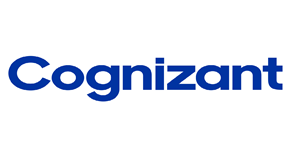Batch Schedule
Weekdays Regular (Class 1Hr - 1:30Hrs) / Per Session
02-09-2019 Starts Coming Monday (Monday - Friday)08:00 AM (IST)
05-09-2019 Starts Coming Thursday (Monday - Friday)08:00 AM (IST)
Weekend Regular (Class 3Hrs) / Per Session
31-08-2019 Starts Coming Saturday (Saturday - Sunday)10:00 AM (IST)
Weekend Regular (Class 3Hrs) / Per Session
Weekend Fast-track (Class 6Hrs - 7Hrs) / Per Session
People Technologies Services
People Technologies provide Java / Advanced Java Training in Bangalore, Chennai, Delhi(NCR), Mumbai, Lucknow 24*7*365. Having trouble for interview preparation? Don’t worry ! Our trainers is avaiable for 24hours wordlwide.
- Classroom Batch Training
- Online Training
- One To One Training
- Customized Training
Java / Advanced Java Training Course BASIC INFORMATION
People Technologies runnning Java / Advanced Java Training in Bangalore, Chennai, Delhi(NCR), Mumbai, Lucknow and other country in more than 10+ branches with highly experienced trainers. Here are the basic information.
- 45+ Hours Course Duration
- Industry Expert Trainers
- 100% Job Oriented Training
- Free Demo Class Available
- Certification Guidance
- Interview Preparation
- Personality Development
Best Java / j2ee Training Course in Bangalore
In this Java / j2ee Programming Course, People Technologies covers all the major concepts of Java / j2ee Programming – in detail, and in depth – practically. People Technologies is available in India and Dubai, Austrlia, Canada. Our Current classes are running for Java / j2ee Training in Bangalore, Chennai, Delhi(NCR), Mumbai, Dubai. This Java / j2ee Course module will give you hands on experience and confidance to write program and logic for project.
You are worried! and thinking of starting a career in IT? Love to play with Computers and Mobile Phones, and thinking of making IT a career choice? Would you like to develop new web application, products and services and want to become Entrepreneur and become a part of tech future? Come and join us, People Technologies is ready to take you in tech world. We will stand up with you from first day to till last day. Every year we are running People Technologies Alumni Program to meet our placed participants and IT industry lead. After college you are worried about your IT career because many people are moving to IT for good growth and long term job prospects with great salaries. People Technologies is best training institute in Bangalore, Chennai, Mumbai, Delhi(NCR), Lucknow, Dubai, Singapore, Australia.
People Technologies is the best Training Institute offers certification oriented Java / j2ee Training in Bangalore, Java / j2ee Training in Chennai, Java / j2ee Training in Mumbai, Java / j2ee Training in Delhi(NCR), Java / j2ee Training in Lucknow. We will make you eligible to clear all type of interviews at end of our sessions. Our team of Java / j2ee trainers and participants are making team for their future help and assistance in subject by 24*7*365. Our Java / j2ee trainers is available for your support across country in different time zone. Our training module and course material will be focused on assisting in placements as well. People Technologies has seprate HR team professionals who will take care of all your interview needs. Our Java / j2ee Training in Bangalore course Fees is very less compared to others.
Java / j2ee Syllabus
Chapter - 01 Java / j2ee Programming Introduction of Java
- Introduction to Java
- features of Java
- Comparison with C and C++
- Download and install JDK/JRE (Environment variables set up)
- The JDK Directory Structure
- First Java Program through command prompt
- First Java Program through Eclipse
Chapter - 02 Data types and Operators
- Primitive Datatypes, Declarations, Ranges
- Variable Names Conventions
- Numeric Literals, Character Literals
- String Literals
- Arrays(One dimensional; two- dimensional)
- Array of Object References
- Accessing arrays, manipulating arrays
- Enumerated Data Types
- Non-Primitive Datatypes
- Defining a class, variable and method in Java
- Method Signature; method calls
- Expressions in Java; introduction to various operators
- Assignment Operator
- Arithmetic Operators
- Relational Operators
- Logical Operators
- Conditional Operators
- Operator Precedence
- Implicit Type Conversions
- Upcasting and downcasting
- Strict typing
- Type conversion
- Control Flow statements
- Statements and it’s various categories in Java
- if, if-else, if-else-if
- switch case
- for statement (both flavours traditional and enhanced for)
- while and do-while loops
- continue Statement; labelled continue statement
- The break Statement; labelled break statement
- The return statement
Chapter - 03 OOPS and its application in Java
- Classes and Objects
- Defining a class
- Defining instance variables and methods
- Method calls via object references
- Abstraction
- Interfaces and Abstract classes
- Abstract and non-abstract methods
- Inheritance
- extends and implements keywords in Java
- Super class and Sub class
- this keyword
- super keyword in Java for inheritance
- Concrete classes in Java
- Polymorphism
- Compile time polymorphism — Overloading of methods
- Run time polymorphism — Overriding of methods
- Method Overriding rules and method overloading rules
- Introduction to Object class and it’s methods
- Encapsulation
- Protection of data
- Java Bean, POJO
- Getters/Setters
- Memory management in Java
- Heap
- Stack
Chapter - 04 Packages
- Need for packages
- What are packages
- package declaration in Java
- Import statement in Java
- How do packages resolve name clashes?
Chapter - 05 Miscellaneous
- Var-Args
- Reference variables, local variables, instance variables
- Memory allocations to variables
- Double equals operator(==) operator for primitives and objects
- toString() method on an object
Chapter - 06 Statics
- Static variables and methods
- Static imports
- Static initialization blocks
- Static concept in inheritance
Chapter - 07 Constructors
- What are Constructors?
- Properties of Constructors
- Default and Parameterized Constructors
- Rules for constructor implementation
- Constructor Chaining
- this call; super call for constructors
- Constructors for Enumerated Data Types
- Constructors concept for Abstract classes and interfaces
Chapter - 08 Exception Handling
- What are Exceptions?
- Need for exceptions
- How can Exceptions be coded in Java?
- API heirarchy for Exceptions
- Types of Exceptions
- Keywords in Exception API: try, catch, finally, throw, throws
- Rules for coding Exceptions
- Declaring Exceptions
- Defining and Throwing Exceptions
- Errors and Runtime Exceptions
- Custom Exception
- Assertions
- What are Assertions?
- Enabling and disabling assertions in development environment
Chapter - 09 Strings in Java
- What are Strings?
- String heap memory and Constant Pool memory
- Immutability in Strings
- String creation on heap and constant pool
- Method APIs on String; operations on Strings
- Mutability of String Objects – StringBuilder and StringBuffer
- Splitting of Strings and StringTokenizer class
Chapter - 10 Collection Framework in Java
- The Collections Framework
- The Set Interface
- Set Implementation Classes
- The List Interface
- List Implementation Classes
- The Map Interface
- Map Implementation Classes
- Queue Interface
- Queue Implmentation classes
- Utility classes
- Sorting collections using utility methods
- equals() and hashCode contract in Java collections
- overriding equals and hashCode methods in Java
- Primitive wrapper classes and all its method APIs
Chapter - 11 Generics
- About Generics
- Generic Functions
- Generics for Collections
- Generic Classes
- Generics for methods
Chapter - 12 Input-Output in Java
- What is a stream?
- Overview of Streams
- Bytes vs. Characters
- Overview of the entire Java IO API
- Reading a file
- writing to a file usinf various APIs
- Reading User input from console
Chapter - 13 Serialization
- Object Serialization
- Serializable Interface
- Serialization API
- ObjectInputStream and ObjectOutput
- Transient Fields
- readObject and writeObject
Chapter - 14 Inner Classes
- Inner Classes
- Member Classes
- Local Classes
- Anonymous Classes
- Static Nested Classes
Chapter - 15 Threads in Java
- Non-Threaded Applications
- Threaded Applications
- Processultitasking Vs Thread based multitasking
- Thread API in Java
- Creating Threads
- States of a Thread
- Sychronization for threads; static and non-static synchronized methods
- blocks
- Concept of object and class locks
- Coordination between threads – wait
- notify and notifyAll methods for inter-thread communication
Chapter - 16 Access Modifers in Java
- What are access modifiers?
- Default
- Protected
- Private
- Public
Java / j2ee Training Methodology & Materials
- 100% hands-on Practical Job Oriented Training
- Well designed exercises/sessions
- Discussion on real life situations / problems faced on the job and their solutions
- Indepth Project work with each course to enhance learning and give the participant a feel of difficulty, thus ensuring they apply in realtime everything they have learnt.
- Task based teaching methodology where students are given tasks to do in class, as required in the real world.
- Assessments at the end of the course help gauge student progress and learning.
























